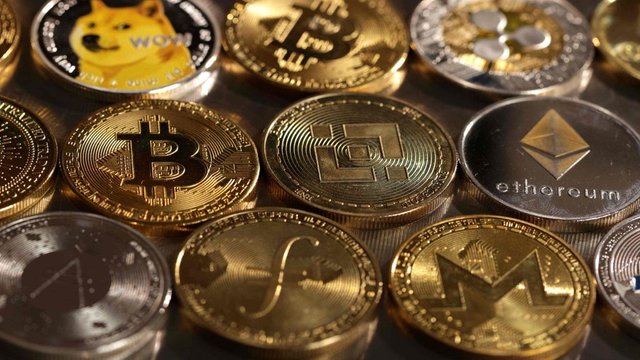Regulatory Action Is Needed: IMF Encourages Policymakers To Secure Digital Currencies

Background on Digital Currencies
The International Monetary Fund (IMF) has recently called on policymakers to take regulatory action regarding digital currencies. With the rise of digital currencies, it’s becoming increasingly important to ensure that these currencies are secure. By implementing the necessary regulations, policymakers can protect consumers, reduce criminal activity, and promote the responsible use of digital currencies.

In this article, we will explore the background of digital currencies, review how they are regulated, and explain why regulatory action is needed. We’ll then look at the IMF’s call to action and examine the recommended steps that policymakers can take to secure digital currencies. Finally, we’ll discuss the potential impacts of such regulations.
What Are Digital Currencies?
Digital currencies, sometimes referred to as virtual currencies, cryptocurrencies, or digital money, are digital assets that can be used as a medium of exchange. These currencies exist only in digital form and are not backed by a central bank or government. Examples of digital currencies include Bitcoin, Ethereum, and Litecoin.
IMF reminds policymakers of the need for tighter digital currency regulations. The decentralized nature of digital currencies poses a challenge to government regulation, as it could be used to facilitate illegal activities or fund terrorist organizations. Governments around the world are taking steps to ensure that digital currencies are used responsibly and transparently. To protect consumers, governments are exploring the development of regulatory frameworks that can help to reduce risk and increase consumer protection.
How Is Digital Currency Regulated?
It is essential to consider the regulatory implications of digital currency in order to ensure the safety and security of digital currencies. Currently, digital currency regulations vary widely in different countries, leaving the global digital currency industry largely unregulated. To address this issue, the IMF has called on policymakers to take action to secure digital currencies. The IMF reminds policymakers of the need for tighter regulations to ensure the safety of users and businesses and prevent the potential misuse of digital currencies.
Ultimately, effective regulations are needed to ensure trust, stability, and sustainability of digital currency markets, so that individuals and businesses can reap the benefits of digital currency without any concerns. Global coordination and collaboration between policymakers and industry experts is necessary to develop an effective approach to digital currency regulation.
The Need for Regulatory Action
The International Monetary Fund (IMF) has emphasized the need for tighter regulations surrounding digital currencies. This warning carries particular relevance in the current financial climate, as more and more individuals, businesses and organizations look to utilize digital currencies in their transactions.
The rapid growth of digital currencies has enabled greater financial inclusion and has allowed individuals to access services they would not otherwise have been able to access. However, this growth also comes with an increased risk of financial fraud, as well as money laundering. To combat this, IMF Managing Director Kristalina Georgieva has warned that stronger regulations and better oversight are needed to ensure a safe and secure system.
One of the key areas in which the IMF has encouraged tighter regulations is the trading of digital assets. The Fund has suggested that the appropriate regulators should put in place requirements for stricter monitoring and reporting of digital currency trades. This would help to ensure that trading activity is properly regulated, and that any suspicious or illegal activities can be detected and prevented.
The IMF also emphasizes the need for governments to establish frameworks to ensure that digital currencies are used in a responsible and accountable manner. This includes ensuring that digital currencies are not used to finance illegal activities, such as terrorism and money laundering.
The Fund also believes that policymakers should look to provide more education and information around digital currencies to the public. This would encourage individuals to make responsible decisions and better understand the implications of their actions when dealing with digital currency.
In conclusion, the IMF has reminded policymakers of the importance of regulating digital currencies, in order to ensure a secure and responsible system. It has encouraged governments to put in place frameworks to ensure that digital currencies are used safely, and to provide education and information to the public. All of these measures are essential in order to ensure a safe and secure digital currency system.
What Are the Risks of Failing to Regulate Digital Currencies?
The International Monetary Fund (IMF) recently reminded policymakers of the need for tighter digital currency regulations to protect against financial crime and other risks. If governments fail to take action, they could be exposing citizens, investors, and businesses to significant financial and operational risks.
The lack of regulation could create an environment where digital currency fraud and scams proliferate, increasing the likelihood that users will suffer significant losses. In addition, digital currencies may be used to facilitate international criminal activities, including money laundering and terrorist financing, which could have dangerous security implications for the global economy.
Ultimately, the IMF warns that if policymakers do not take the necessary steps to protect against digital currency risks, investors and consumers could be exposed to potential losses, and the integrity of the financial system could be significantly compromised.
What Actions Can Policymakers Take to Secure Digital Currencies?
The International Monetary Fund (IMF) recently urged policymakers to take action to ensure the security of digital currencies. As the demand for digital assets increases, so must the regulatory framework to protect them.
The IMF reminded policymakers of the need for tighter digital currency regulations, emphasizing the need to reduce operational risk, increase cyber security, and protect customer funds. Regulatory bodies should consider implementing customer identification, KYC, anti-money laundering and counter terrorism financing regulations.
Furthermore, international agreements should also be established to ensure global cooperation and coordination between regulators. By working together, regulators will be able to share data and investigate suspicious activities more effectively.
Finally, regulators should also consider implementing capital requirements to protect investors and to foster a healthy and stable market. Capital reserves should be in place to help ensure customer funds are available in the event of insolvency, fraud or other unexpected circumstances.
The International Monetary Fund's (IMF) Recommendations
The IMF has recently made it clear that more stringent regulations are needed to secure digital currencies. The IMF has released a statement reminding policy makers of their responsibility to ensure that digital currencies are properly regulated and monitored. The statement acknowledged that digital currencies are becoming increasingly popular and present both opportunities and risks.
The IMF firmly believes that policymakers need to take decisive action when it comes to regulating digital currencies. In order to effectively monitor and regulate the space, policymakers need to understand the technical and legal aspects of digital currencies. The IMF stressed the importance of developing appropriate frameworks to deal with digital currency regulation, as the technology is still in its early stages and there is a need for a consistent and comprehensive approach.
The IMF also emphasized the need for harmonizing rules across jurisdictions. This is especially important when it comes to international transactions as different countries may have different regulatory frameworks. The IMF also noted that there is a need for more transparency in digital currency exchanges which will help with compliance and ultimately ensure the safety of users.
Finally, the IMF reminded policymakers of the need for tighter digital currency regulations in order to protect consumers and prevent fraud and other criminal activity. The statement highlighted the importance of implementing strong Anti-Money Laundering (AML) and Counter Terrorism Financing (CTF) measures to combat cybercrime. The IMF stressed that these measures should be tailored to the digital currency sector and consistent across jurisdictions.
The aforementioned recommendations from the IMF demonstrate the increasing importance of regulating digital currency transactions. It is the responsibility of policymakers to ensure that the rules and regulations surrounding digital currencies are appropriate and effective, and these recommendations provide a good starting point for doing so.
What Steps Is the IMF Advising Policymakers To Take?
The International Monetary Fund (IMF) has released a new report urging policymakers to act decisively in order to secure digital currencies. The IMF's message is clear: governments must take steps to ensure the safety and stability of digital currency markets.
The IMF reminds policymakers of the need for tighter digital currency regulations. This includes implementing strong AML/CFT (Anti-Money Laundering/Combating the Financing of Terrorism) measures, supervising digital asset service providers, and introducing proper consumer-protection measures. The IMF also emphasizes the need for coordinated international action: countries should work together to ensure that the same standards are applied across the board.
At the same time, the IMF encourages governments to capitalize on the innovative potential of digital currencies. This means creating an environment that encourages and fosters innovation while at the same time protecting consumers.
In a nutshell, the IMF is asking that governments move swiftly to protect digital currency markets from risks, while also allowing for innovation to take place. This is a delicate balancing act that requires careful consideration and thoughtful regulation.
What Would Be the Impact of Such Regulations?
The IMF reminds policymakers of the need for tighter digital currency regulations in order to ensure the safety and security of all users. If implemented, such regulations could significantly reduce the risk of fraud, increase consumer confidence, and ultimately benefit the global financial system. In addition, with tighter regulations, digital currency systems would become more efficient, and would make it easier for businesses to thrive in the digital economy.
Furthermore, such regulations could also encourage broader adoption of digital currencies as well as bolster efforts to curb money laundering and terrorist financing. Regulations would also help prevent market manipulation and create a level playing field for all types of digital currency businesses.
In short, IMF-backed regulatory action could have a huge positive impact on the digital currency market and the global financial system.
The IMF’s Call to Action
The International Monetary Fund (IMF) has recently released a report that calls for improved regulatory supervision of digital currencies. The report emphasizes the need for greater control of digital assets for policymakers and reminds them of the urgent need for tighter digital currency regulations.
In particular, the report highlights the risks associated with digital currency, emphasizing the need for greater transparency, supervision, and investor protection. The report further outlines the challenges posed by digital currencies, such as the potential for money laundering and terrorist financing, as well as the potential for market manipulation due to the decentralized nature of many digital currencies.
In response to these risks, the IMF recommends that policymakers adopt a “risk-based approach” to digital currency regulation. The report advocates for measures such as the establishment of a regulatory framework that keeps up-to-date with changes in digital currency technology, the enforcement of anti-money laundering and countering of financing terrorism (AML/CFT) regulations, and the development of consumer protection frameworks.
Furthermore, the report recommends that policymakers ensure that digital currencies are subject to the same AML/CFT laws and regulations as other financial assets, and that oversight of digital currency exchanges is improved. Additionally, the IMF proposes that central banks should be authorized to conduct on-site inspections and take action against the parties responsible for any violations.
In conclusion, the IMF’s report recommends a comprehensive and consistent global regulatory framework for digital currencies, one that is tailored to the specific risks posed by each digital currency, and which is updated over time to ensure that it is keeping up with the fast-evolving technology and markets. By doing so, policymakers would be taking steps towards protecting users and investors, while protecting financial integrity and stability.